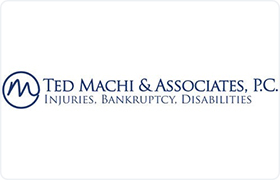Sunnyvale Bankruptcy & Debt Lawyer, Texas
Sponsored Law Firm
-
 x
x

Click For More Info:
-
Machi & Associates, P.C.
1521 North Cooper Street Suite 550 Arlington, TX 76011» view mapAccident & Injury, Bankruptcy, Social Secuirty We Fight So You Don't Have To
Our professional team of attorneys and staff provide the experience and expertise needed to effectively handle your case.
800-804-0771
Daniel James Artz
Commercial Real Estate, Litigation, Credit & Debt, Bankruptcy
Status: In Good Standing Licensed: 42 Years
David Irwin Goodhart
Estate Planning, International Tax, Bankruptcy, Criminal, Commercial Real Estate
Status: In Good Standing Licensed: 29 Years
Jordan Montgomery Lewis
Traffic, Patent, Employment, Bankruptcy
Status: In Good Standing Licensed: 10 Years
Pamela Jean Franklin
Identity Theft, Civil Rights, Consumer Bankruptcy, Bankruptcy
Status: In Good Standing Licensed: 32 Years
Robert J. Fuller
Bankruptcy, Dispute Resolution, Insurance, Personal Injury, Criminal
Status: In Good Standing Licensed: 42 Years
Gregg Oberg
Motor Vehicle, Litigation, Consumer Bankruptcy, Personal Injury, Accident & Injury
Status: In Good Standing
Clifton M. Freeman
Litigation, Business & Trade, Consumer Bankruptcy, Personal Injury, Accident & Injury
Status: In Good Standing Licensed: 42 Years
Arthur Stephen Linn
Wills, Family Law, Consumer Bankruptcy, Bankruptcy
Status: Deceased Licensed: 26 Years
Stephen H. Ramsey
Litigation, Collaborative Law, Family Law, Credit & Debt
Status: In Good Standing Licensed: 49 Years
 Ted Machi Arlington, TX
Ted Machi Arlington, TX Practice AreasExpertise
Practice AreasExpertise
